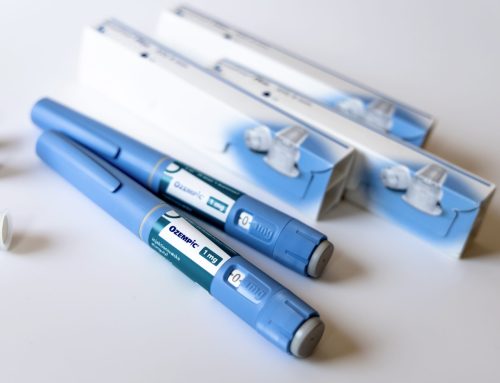
The connection between addiction and trauma has finally entered the public consciousness in a way that seems to ensure it will no longer be glossed over, overlooked, or forgotten. This is a very, very good thing. That said, our work is still cut out for us. What is this connection between trauma and addiction exactly and how can understanding it help build stronger recovery?
This Georgia Addiction Treatment Center article will answer those questions and more.
What is The Definition of Trauma?
“An emotional response to a terrible event like an accident, rape or natural disaster.” That’s the American Psychological Association’s definition of trauma. But it only scratches the surface. Perhaps words really cannot do justice to the impact that trauma can have. Childhood trauma or Adverse Childhood Experiences (ACEs) in particular, can completely shape the way a person sees the world and their place in it. There’s no overstating the weight of the impact of something like being beaten or sexually abused as a child.
But even traumatic experiences that happen later in life or adulthood have lasting, reverberating effects. Unfortunately, many people still imagine that the right approach is just to “tough it out” or keep a stiff upper lip. Why do they think this way about trauma? It may be something they were taught. Maybe they were scolded for crying as a kid or it could be cultural. They get the sense from TV or movies or other examples that acknowledging your feelings or the impact they have on you is somehow showing weakness. Nothing could be further from the truth.
Trauma is:
- How the mind and spirit respond to terrible, shocking, or frightening experiences.
- Often at the root of other problems, like addiction, depression, or anxiety.
- Something that everyone experiences. No one is without trauma.
- Experienced differently by different people. There is no “wrong” experience.
- Something which we can recover and heal from with the right kind of help.
Where Do Addiction and Trauma Meet?
While it’s not fair to say that trauma alone causes addiction, trauma can certainly be a major contributing factor to addiction. Unresolved, unprocessed trauma doesn’t simply disappear. We may wish for uncomfortable feelings or unpleasant memories to go away, but the mind doesn’t work like that. Trauma cannot be “out of sight, out of mind”.
Even if a traumatic memory is forgotten from the conscious mind or suppressed somehow, it can still impact a person’s emotional state and behavior in the present. People with trauma and addiction are often unaware there is a connection between the two. They may not even realize that the feelings they are trying to “medicate” with drugs or alcohol are products of traumatic experiences they had many years ago.
This is why trauma-informed addiction treatment is so important. When trauma is a factor in your addiction or mental health as a whole, it must be addressed for you to make progress. The key to long-term recovery for the trauma survivor with addiction is resolution through trauma therapy. They must address, process, and learn new tools for coping with trauma and emotions during treatment to help protect their hard-won recovery after treatment.
How trauma can help to trigger addiction:
- Addiction can happen when people don’t have healthy ways to cope with trauma and are looking for relief from symptoms like anxiety, depression, or anger.
- People with trauma often come from families where they learned to use or drink as a way to cope with uncomfortable feelings (learned behavior from family members/others).
- Sometimes addiction arises when someone misuses a prescribed medication like an antianxiety medicine, opioid painkillers, or ADHD medicine to cope with trauma.
How Are Addiction and Trauma Treated Together?
The effects of trauma remain with us, often for a lifetime. If you only remember one thing you’ve read here today, remember this: Trauma doesn’t go away if we just ignore it. But we can decrease the impact and power trauma has over us with time. Facing trauma’s impact is anything but weak. It takes tremendous courage to face your trauma.
So, how do you do that? The best way is by getting treatment at a good dual-diagnosis addiction rehab with a trauma-aware curriculum, like Georgia Addiction Treatment Center. Dual-diagnosis treatment means that the program is designed to diagnose and treat mental health disorders, like anxiety, depression, or PTSD, and addiction at the same time — this is key if trauma is at the root of your addiction.
Trauma can be addressed during addiction treatment in several ways, but Cognitive Behavioral Therapy (CBT) and trauma therapy are two of the most powerful. In some cases, EMDR treatment can be very helpful for trauma too. A trauma-aware addiction treatment program like ours is designed from the ground up to recognize and address the impact of trauma. This means a patient dealing with trauma and addiction together can expect to get an individualized treatment plan that targets these specific areas of need.
Georgia Addiction Treatment Center is a Trauma-Aware Program
The dual-diagnosis addiction care program at Georgia Addiction Treatment Center is engineered to address trauma and its impacts. Trauma awareness is a central feature of our program and it has been ever since we developed our mental health support capabilities.
For trauma survivors contending with addiction, there is no way to separate the two issues. The only way past them is to go through them. This means treating both conditions thoroughly and at the same time — that’s precisely what we do here.
All it takes is a phone call to get things moving in the right direction.
Reach us right now at: (855) 952-3546




